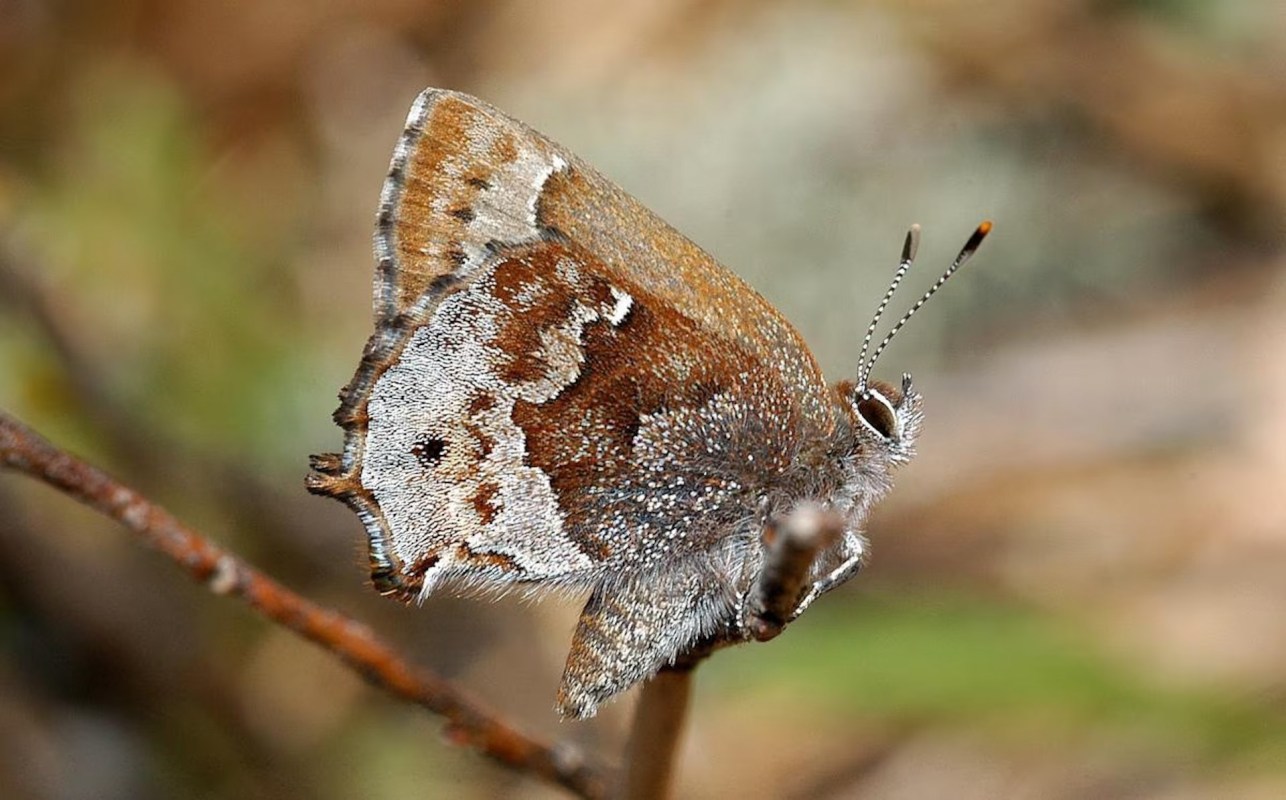Last summer, Massachusetts announced a big victory regarding the tiniest of creatures — the caterpillar of a rare butterfly species that looks to be expanding its range, thanks to decades of habitat restoration.
Staff from the Division of Fisheries and Wildlife (MassWildlife) discovered a frosted elfin caterpillar — which is designated as a species of special concern in Massachusetts — about 1 mile away from the nearest known population.
This is notable because the species is found only at about two dozen sites across the state and lives in localized colonies. Most never leave the area occupied by their predecessors.
According to a press release, this critter's habitat expansion was made possible thanks to decades of landscape restoration by MassWildlife.
The caterpillar was found in an area known as the Montague Plains WMA, which contains the largest inland pine barrens habitat in the state. This ecosystem is home to many specialized plants and animals and is dependent on periodic fires.
However, when the agency acquired the parcel of land in 1999, it suffered from decades of agricultural plowing and wildfire suppression. For the past two decades, MassWildlife has worked to restore the habitat through prescribed fire, tree cutting, mowing, and planting Indigenous species.
The agency said its efforts are working, as plants like lupine, wild indigo, New Jersey tea, scrub oak, and low-bush blueberry are making a comeback. Lupine and wild indigo are two plants that help maintain the open habitat needed by the frosted elfin and the plants it feeds on.
"The unique barrens habitat at Montague Plains WMA is considered regionally and globally rare, making our restoration efforts at this site especially important for rare animals and plants that require this special habitat type," Brian Hawthorne, MassWildlife's habitat program manager, said in a statement. "It is incredibly rewarding to see decades of effort paying off."
The frosted elfin isn't the only animal species to benefit — MassWildlife said other wildlife, such as the ruffed grouse, prairie warbler, black bear, white-tailed deer, and native bees and reptiles, are taking advantage of the restored habitat and plentiful food sources.
Though we are still in the middle of an extinction crisis, conservation projects like this are making a huge difference for wildlife across the globe.
For instance, scientists recently announced that the scimitar-horned oryx, which was once declared extinct in the wild, has seen a resurgence thanks to reintroduction efforts.
Conservationists are also working to save ocean-dwelling organisms. One organization has planted more than 52,000 corals, with plans to reach a million by the end of 2025. The efforts will help support other species like fish, mollusks, and sea turtles.
MassWildlife announced its caterpillar discovery in a Facebook post, and the agency's followers expressed their excitement.
"Congratulations on this amazing victory!" One person said. "Thanks for all you do."
"Struck gold. Yay!!" another commented.
Join our free newsletter for cool news and cool tips that make it easy to help yourself while helping the planet.









